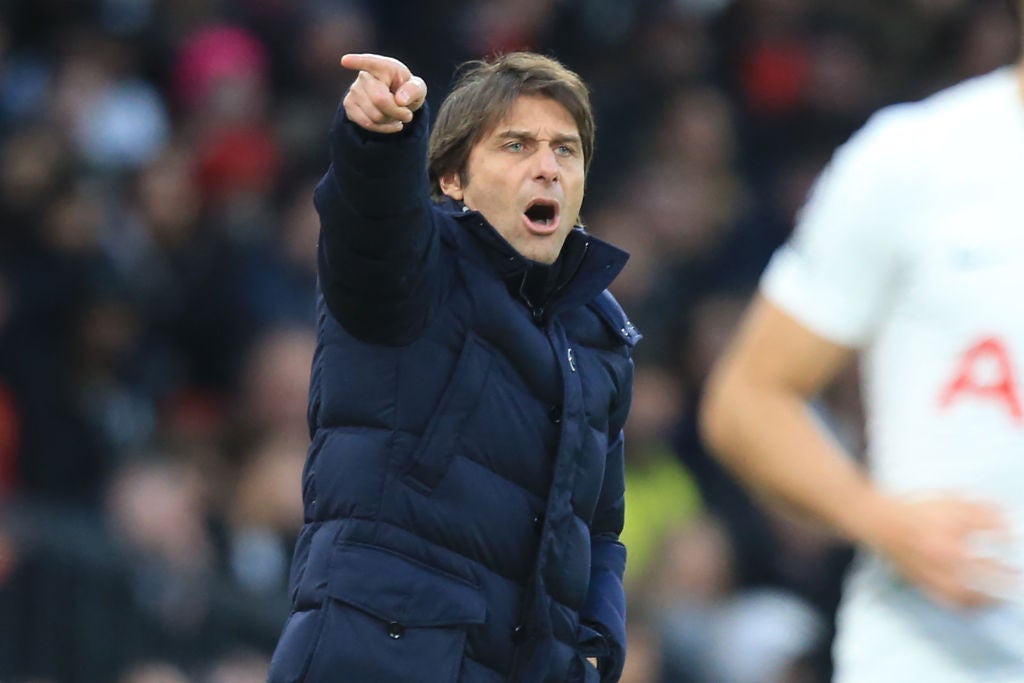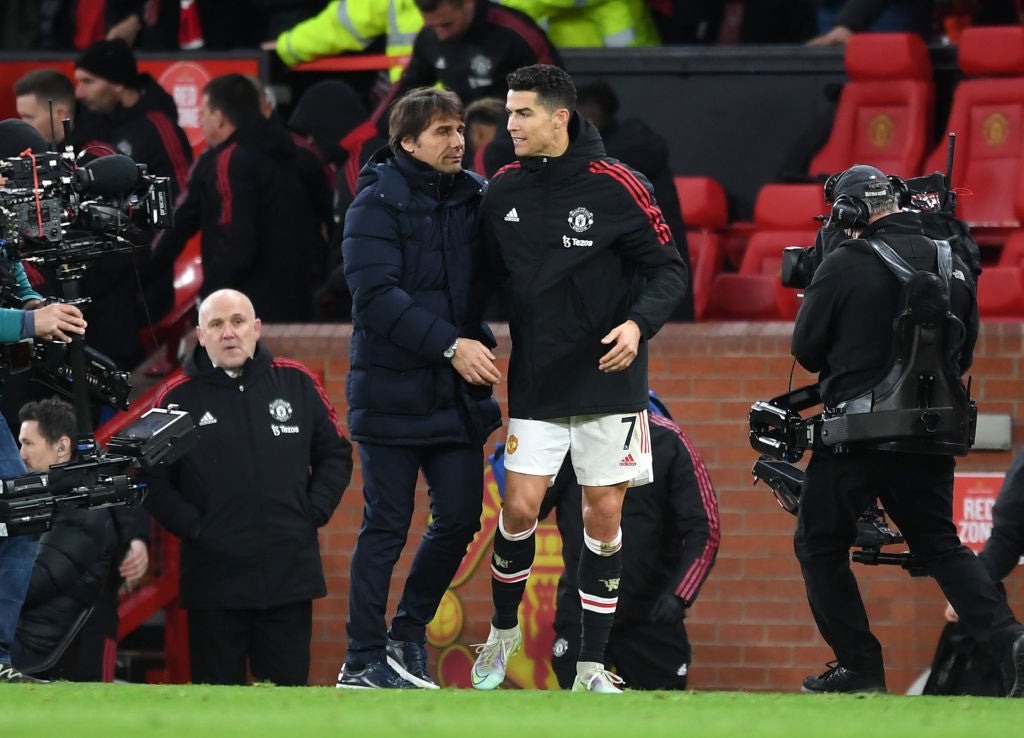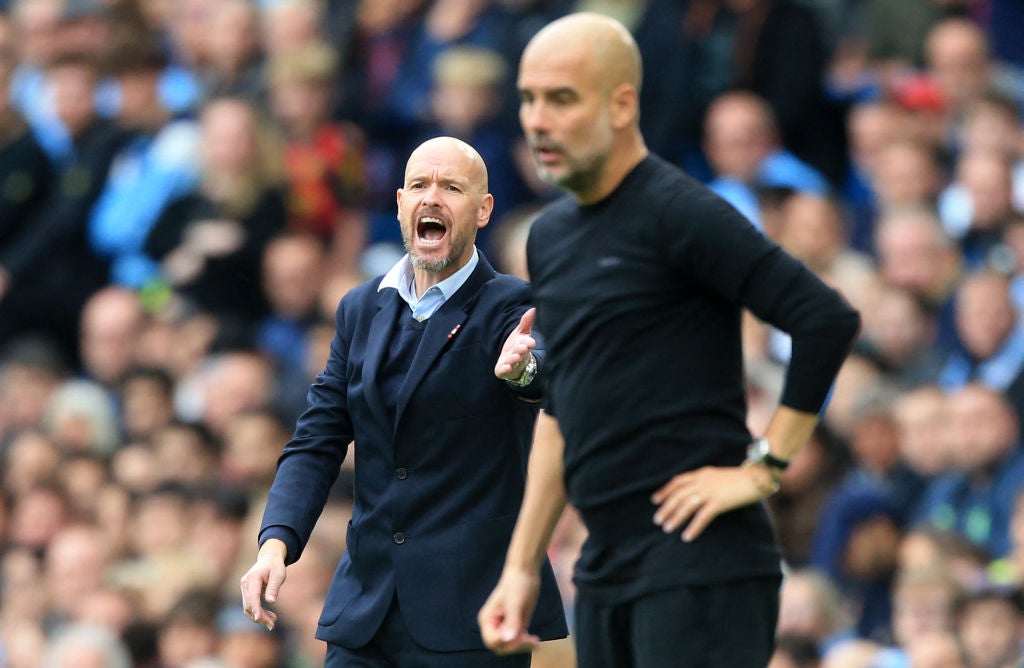Manchester United may wonder what might have been as Antonio Conte returns to Old Trafford
The Tottenham manager was a contender for the United job 12 months ago, and returns now with Spurs in the Champions League and enjoying their best start to a Premier League season

The first anniversary falls next week. Not, as Antonio Conte seemed to hope then, of his appointment of Manchester United manager, but of the well-sourced reports that he wanted to replace Ole Gunnar Solskjaer. Technically, of course, Solskjaer still had a job, though the 5-0 thrashing by Liverpool weakened his hold on it. Even Ed Woodward was starting to realise that perhaps the Norwegian was not the answer after all. A putative successor did not waste any time advertising his interest.
Conte looked the antidote and the antithesis to Solskjaer. The most obvious criticism of the legendary ex-player, albeit one United took too long to concur with, was that he was not a world-class manager. Conte was; he was an available answer to Pep Guardiola and Jurgen Klopp. United ignored the public entreaties. They had their doubts about his suitability for them.
And so November 2021 shaped the present and future of two clubs. By the time United belatedly sacked Solskjaer, Conte had taken the Tottenham post; to some, it looked a rebound relationship after United spurned his advances. Indirectly, Solskjaer had helped him, his 3-0 win over Nuno Espirito Santo’s Spurs showing that, in the last dance of the desperate, the Portuguese was a dead man walking faster towards the exit.
Conte will be in the Old Trafford dugout on Wednesday, but for 90 minutes, rather than the closest to permanence a manager indelibly associated with short-termism gets. His first visit as Tottenham manager brought a defeat inflicted by precisely the sort of signing he wouldn’t have wanted: Cristiano Ronaldo scored a hat-trick in a tour de force and, over an evening, United’s fondness for stardust looked vindicated.

But not over a year. These clubs are in the Champions League and the Europa League respectively because Tottenham took 15 points more than United last season after Conte’s appointment; indeed, when Nuno was dismissed, Solskjaer’s side were above his in the table. It reflected on Ralf Rangnick’s failure; perhaps it showed the fundamental problems were greater in Manchester than London.
This season, Spurs are already seven points better off, albeit after playing a game more. The criticisms of Conte’s efficient style, which seemed to form part of Gary Neville’s case that he was the wrong fit for United, have not prevented Tottenham from scoring the third-highest number of goals and being level on points with Manchester City after making their best start to a campaign since 1963.
He has grounds to argue pragmatism is paying off. There are times when Conte appears be conducting an experiment, to see if he can turn back time, ignore the evidence of the Guardiola and Klopp era and prove a team can win the Premier League without high pressing, being innately attacking or having huge amounts of possession. Conte once branded Jose Mourinho a “fake” but his footballing philosophy has more in common with a predecessor at Chelsea and Spurs, albeit updated and augmented with wing-backs, than the image United covet as cavaliers.
A couple of weeks ago, Conte went on the offensive about his defensive approach. “I don’t like to play open and concede a lot of space and concede six, seven or eight goals,” he said. It was probably not a coincidence that it came after United had lost a Manchester derby 6-3.

Erik ten Hag, a manager who lacks Conte’s record of winning five league titles in elite divisions, has had a mixed start, sometimes prospering when he has compromised and floundering when he has been most ambitious. Conte could see that as a case for expediency, not entertainment.
Perhaps, though, Neville was right. If Conte’s impatience means he rarely seems a perfect fit for anyone, he and United may have looked a particularly imperfect alliance. “I can teach football to many people,” he said earlier this month; his career would suggest his immodesty is justified. But could he have taught United? Rangnick was quick to conclude they couldn’t press. But Ten Hag’s best results, like Solskjaer’s, have come from quick counter-attacking, and Conte is a master of it.
The Victor Moses precedent shows Conte can find purposes for relatively prosaic players, if they have the work ethic and tactical discipline he requires. Maybe McFred would have found favour with him, and it is tempting to wonder if a manager who excelled with Paul Pogba at Juventus could have revitalised an enigma, though his determination to discard Tanguy Ndombele, Giovani Lo Celso and Dele Alli could have led to marquee figures at United being frozen out in a way the club probably would not have liked, especially were it Ronaldo.
The suspicion is that Neville is right, albeit in a way that is an indictment of United. Conte would have enjoyed their large budget, but hated the rank incompetence they sometimes demonstrate in the transfer market. His ethos would have differed dramatically from theirs, his priorities clashing with theirs. United want a manager for years, an empire builder, whereas Conte can conquer and then quit.
United would probably have been too dysfunctional and Conte too combustible for any relationship to have worked. His 18-month contract at Tottenham leaves them facing an uncertain future. But when United survey the fixture list and see themselves in the Europa League and Tottenham in the Champions League, they might ponder what could have been.
Join our commenting forum
Join thought-provoking conversations, follow other Independent readers and see their replies
Comments
Bookmark popover
Removed from bookmarks